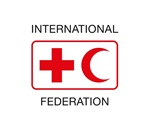Programmes to provide more in-depth information and basic trainings, particularly to vulnerable migrant groups. This helps prepare them for the realities and challenges of moving to work abroad and reduces vulnerability to exploitation and abuse.
The Comprehensive Pre-Departure Education Program (CPDEP) provides classes in language training, culture familiarization and stress management to potential overseas foreign workers. The classes are designed to prepare them for their new life overseas.
For example, a 3 to 6-day training is delivered to household service workers, an especially vulnerable group of labour migrants. During this training, workers are given basic instruction in the language of their countries of destination, information on the culture of their destinations, and tips on how to manage the challenges of being in domestic work. The Language and Culture Familiarization Course, introduced by the Overseas Workers Welfare Administration in January 2007, provides Arabic language courses. It also addresses potential cultural barriers that workers may face abroad. A stress management seminar is also available for future household service workers. The seminar is a half day programme that raises awareness on the causes of stress and its effects, and helps to prepare emotionally and mentally for the challenges of working abroad. In addition, information on common coping strategies are shared and household service workers are encouraged to develop new coping mechanisms.
As of 2011 the Philippines had 96,538 Household Service Workers abroad. However, specific information on how many enrolled in CPDEP is not available.
Design. [P1] Focuses on reducing the vulnerability of domestic workers prior to travelling. [P3] Supports the aspiration of domestic workers to work abroad.
Implementation. [P6] Several actors collaborate to deliver effective PDOS.
- A 2011 survey of overseas household domestic workers found that almost half did not undergo training or receive certification.
- Sixty-two per cent of respondents to a 2011 survey of overseas household domestic workers were not aware of the Household Services Workers Policy, indicating a gap in the knowledge provided by the course.
- Monitoring and regulating training agencies is important to ensure trainings are of sufficient quality.
Smart practices
Smart practices report and database survey
About the report
People migrate in pursuit of a better life for themselves and their families. As described in the International Federation of Red Cross and Red Crescent Societies’ (IFRC) Policy on Migration, “migrants are persons who leave or flee their habitual residence to go to new places – usually abroad – to seek opportunities or safer and better prospects.
Read more
About the International Federation

